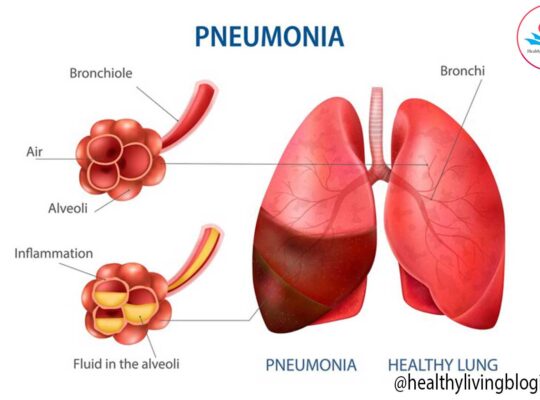Healthy eating habits are essential for maintaining a balanced diet and promoting overall health and well-being. Here are some tips to help you develop and maintain healthy eating habits.

Unlocking the Power of a Diverse Diet: The Benefits of Consuming a Variety of Foods
Consuming a variety of foods is a healthy practice. It means eating different types of foods from different food groups. This helps you get a variety of nutrients, vitamins, and minerals that are important for your health. Including a variety of foods in your diet has several benefits:

- Obtain a balanced nutrient intake: Different foods offer different types and amounts of nutrients. By diversifying your food choices, you increase the likelihood of fulfilling your body’s nutrient requirements.
- Boost overall nutritional intake: Consuming a wide array of foods allows you to access a broader spectrum of essential nutrients. This can contribute to optimal health, prevent deficiencies, and support overall well-being.
- Enhance taste and enjoyment: Incorporating various foods into your meals can make eating more pleasurable and exciting. It adds diversity to your dishes’ flavors, textures, and colors, making your meals more appealing.
- Prevent dietary boredom: Eating the same foods repeatedly can lead to boredom and reduced enjoyment of meals. By incorporating different foods, you can keep your meals interesting and maintain your enthusiasm for healthy eating.
- Support gut health: Including a variety of foods can enhance the diversity of your gut microbiota—the community of microorganisms inhabiting your digestive system. A diverse microbiota is associated with better gut health and improved digestion.
- Reduce the risk of nutrient deficiencies: A varied diet helps to minimize the risk of specific nutrient deficiencies. By consuming foods from different food groups, you increase the likelihood of obtaining all the essential nutrients your body needs.
Portion control

- Portion control is the practice of managing the amount of food consumed during a meal or snack.
- Using smaller plates and bowls can create the illusion of a larger portion, helping to feel satisfied with less food.
- It can be helpful for managing weight and reducing calorie intake.
- Being mindful of hunger and fullness cues is important for portion control.
- Listening to the body’s signals and eating until comfortably full is essential.
- Slowing down while eating, chewing thoroughly, and savoring each bite can enhance awareness of satiety levels.
- Portion control helps regulate calorie intake, promote healthier eating habits, and maintain a balanced diet.
- It allows enjoying a variety of foods while maintaining a healthy weight and overall well-being.
Limit processed foods
Minimizing the consumption of processed foods is beneficial for your health. Here are some points to consider:

- Processed foods often contain high levels of unhealthy fats, added sugars, and sodium, which can have negative effects on your overall health.
- Excessive intake of unhealthy fats can contribute to weight gain, increase the risk of heart disease, and negatively impact cholesterol levels.
- Consuming too much added sugar from processed snacks can lead to weight gain, dental problems, and an increased risk of developing chronic conditions such as diabetes and cardiovascular disease.
- Processed foods are typically high in sodium, which can contribute to high blood pressure and increase the risk of heart disease and stroke.
- These foods often lack essential nutrients and fiber that are important for maintaining a balanced diet.
- By minimizing processed food consumption, you can opt for healthier alternatives such as fresh fruits, vegetables, whole grains, lean proteins, and homemade meals, which provide more nutrients and are generally lower in unhealthy ingredients.
Stay hydrated:

- Drink plenty of water throughout the day: Staying hydrated is crucial for maintaining overall health. Water helps regulate body temperature, assist in digestion, and support various bodily functions. Aim to drink at least 8 glasses of water per day, or more if you engage in strenuous activities or live in a hot climate.
- Limit the intake of sugary beverages, like soda: Sugary beverages, such as soda, are high in calories and provide little to no nutritional value. Consuming excessive amounts of sugary drinks can contribute to weight gain, tooth decay, and an increased risk of various health conditions, including type 2 diabetes and heart disease. It’s best to minimize or avoid these drinks altogether.
- Opt for healthier alternatives, such as herbal tea or infused water: Instead of reaching for sugary drinks, consider healthier alternatives. Herbal teas provide a variety of flavors and potential health benefits. They are often caffeine-free and can help with relaxation, digestion, and immune support. Infused water, made by adding slices of fruits, herbs, or vegetables to water, can be a refreshing and flavorful option without any added sugars. Experiment with different combinations to find your favorite infused water flavors.
Cook and prepare meals at home:

- Cooking your own meals gives you the power to choose what ingredients you use, which helps you make healthier choices. It’s like a tasty adventure where you can try out new recipes and flavors, making eating at home super enjoyable and exciting.
Plan your meals and snacks

- Planning your meals in advance is an effective way to avoid impulsive eating and make healthier food choices. By creating a meal plan, you can ensure a balanced and nutritious diet while avoiding the temptation of unhealthy options. Additionally, keeping wholesome snacks like fruits, nuts, or yogurt readily available can help curb cravings and promote overall well-being.
Embracing these habits will empower you to prioritize health and make mindful dietary decisions.
Listen to your body

- Pay attention to your body’s hunger and fullness signals. Establish a mindful eating practice that allows you to connect with your body’s needs. When genuinely hungry, nourish yourself with balanced meals. Mindful eating involves savoring each bite, appreciating flavors and textures.
Stop eating when satisfied, but not overly full. Be aware of satiety cues and recognize when you’ve had enough. Avoid overindulging or eating beyond fullness. Listen to your body’s signals and respect its natural rhythm.
Remember, everyone has different hunger and fullness cues. Tune in and find what works best for you. By paying attention to your body’s signals and practicing mindful eating, develop a healthier relationship with food and support overall well-being.
Practice mindful eating:
To fully enjoy and appreciate your meal, here are a few tips:

- Slow down: Take your time while eating and avoid rushing through your meal. Eating slowly allows you to savor each bite and fully experience the flavors.
- Pay attention: Be mindful of the taste, texture, and flavors of your food. Notice the different sensations and try to identify the ingredients. This can enhance your enjoyment and make eating a more sensory experience.
- Minimize distractions: Avoid distractions like watching TV or using smartphones while eating. By focusing solely on your meal, you can fully engage with the flavors and textures in front of you.
Remember, the goal is to savor and appreciate your food, so take the time to enjoy each bite and fully immerse yourself in the dining experience. Happy eating!
Seek professional advice:

- If you have specific dietary needs or concerns, it is advisable to consult a registered dietitian or nutritionist. They have the expertise to provide personalized guidance and create a tailored nutrition plan to meet your individual requirements. Seeking professional advice ensures that you receive accurate and reliable information about your dietary choices.
Remember, healthy eating is a long-term commitment. Small, sustainable changes in your eating habits can make a big difference in your overall well-being.







